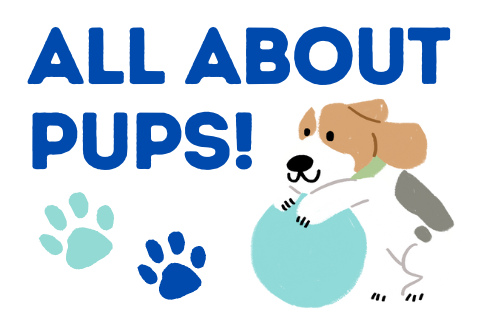Puppies bite for a variety of reasons. They might be teething and need to chew on something to relieve the discomfort, or they could be trying to play rough and learn how to interact with other dogs. Puppies might also bite when they’re anxious or scared, or if they’re feeling overwhelmed. If your puppy is biting too much, it’s important to start training them early on what is and isn’t appropriate behavior. Be consistent with your commands and rewards, and make sure everyone in the home is following the same rules.
Teaching your puppy to socialize with other dogs and people can also help them learn how to behave around others. If the problem persists, you may need to seek professional help from a canine behaviorist or trainer. Remember, puppies bite for a variety of reasons, but with patience, consistency and training, you can teach your pup that biting is not an acceptable behavior.
It’s also important to understand the different types of bites. Puppies generally use their mouths in order to explore the world around them, which usually involves gentle mouthing and grabbing hold of things like clothing or toys. This type of biting is normal and should be expected as part of the learning process. However, if your puppy starts using their teeth more aggressively than usual, it could mean that they are feeling anxious or scared. In this case, it’s important to remove your puppy from the situation and assess why they may be feeling this way.
Finally, puppies can also use their mouths as a form of communication when interacting with other dogs. This type of play-biting is usually done in a gentle manner and does not cause any harm. However, if the play gets too rough, you should intervene and make sure all parties involved remain safe. If your puppy continues to exhibit aggressive behavior even after being corrected, professional help may be necessary in order to properly address the issue.
By understanding why puppies bite and learning how to manage their behavior, you can help ensure that your pup grows up to be a happy and well-adjusted adult dog. With patience, consistency, and training, you can help your puppy learn that biting is not an appropriate way to interact with the world around them.
